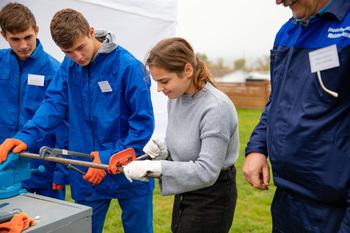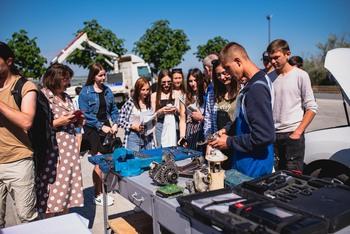Context
Since 2020, the Republic of Moldova (RM) has faced a triple crisis triggered by the Covid-19 pandemic. This includes agricultural drought, an extreme increase in energy prices, resulting in a decline of the gross domestic product (GDP) by 7 per cent. On top of that, the Ukraine invasion in spring 2022 has also majorly impacted the country’s economic growth.
Although youth unemployment is relatively low, the percentage of economically inactive youth is extremely high, at 61.7 per cent of people aged between 15 and 34. The rate of youth not in education, employment or training (NEET) of the total youth population (15 to 34 years old) reached 30.4 per cent in 2021.
The Moldovan Government began reforming vocational education and training (VET) to match labour market demands in 2014, including wider involvement of the private sector in shaping and governing VET.
The Parliament of the Republic of Moldova adopted the Law on Dual VET in April 2022 that defines relations between apprentices, VET institutions and training companies thus improving the country’s VET system.
Objective
The demand-oriented dual VET system to promote ecological, economic and social development in Moldova has improved.

